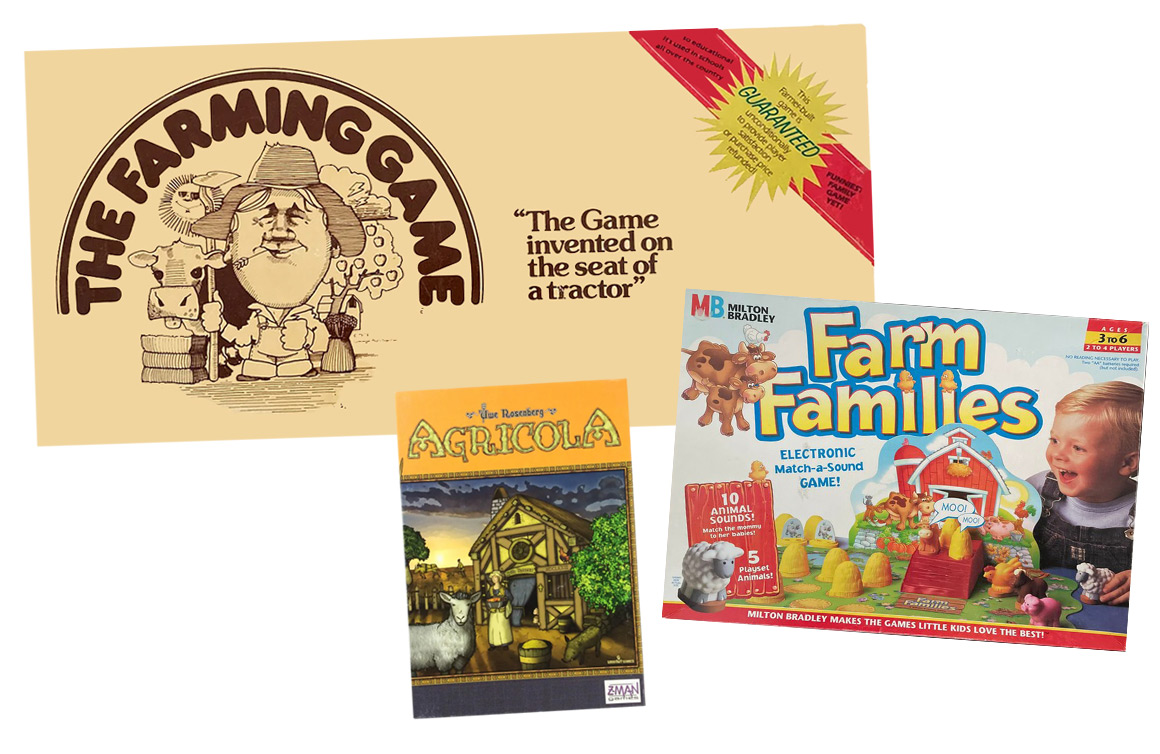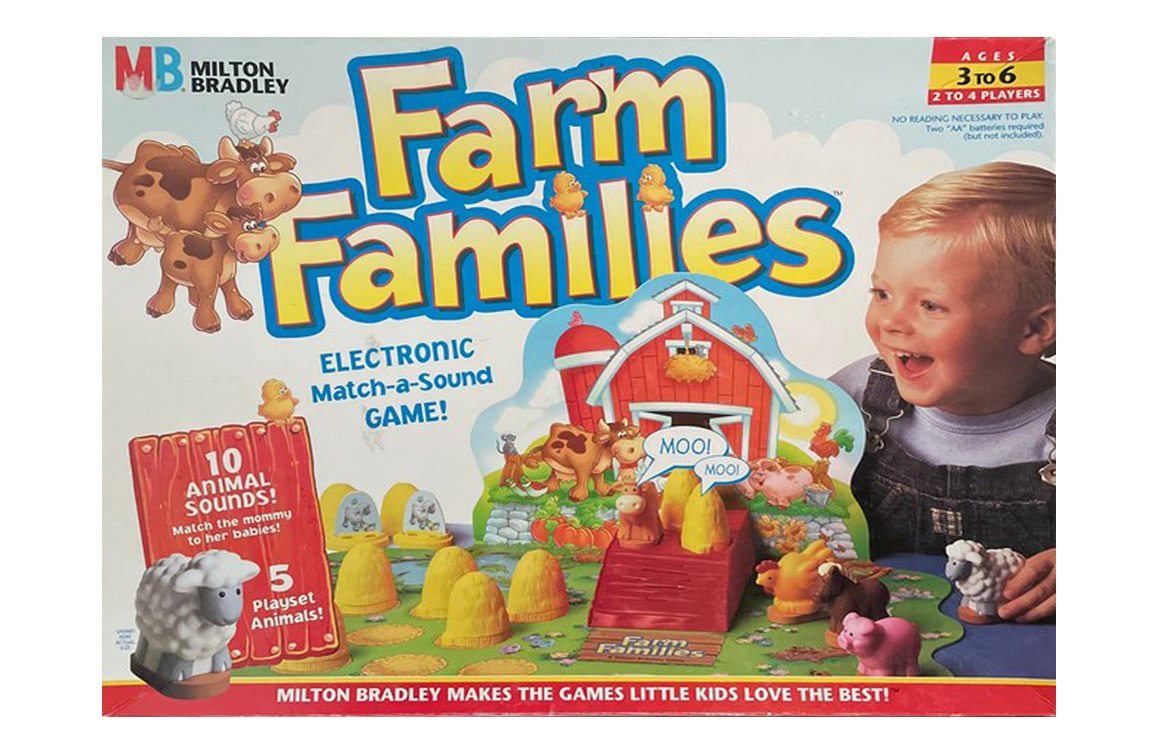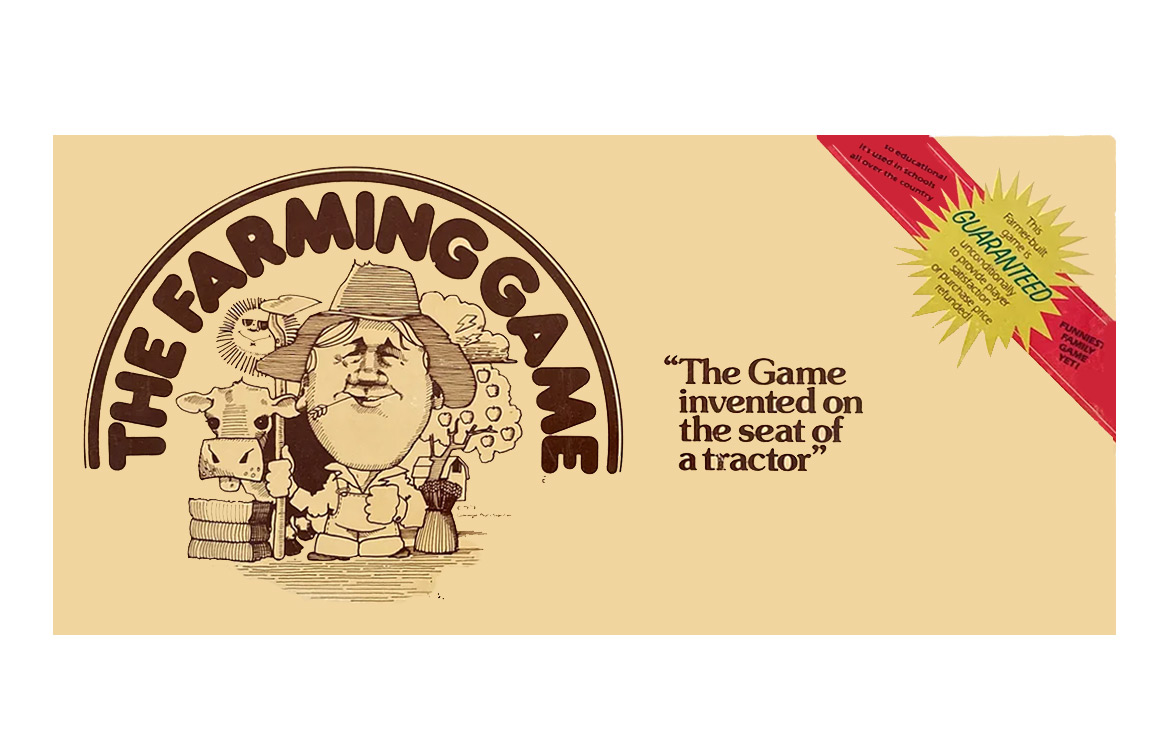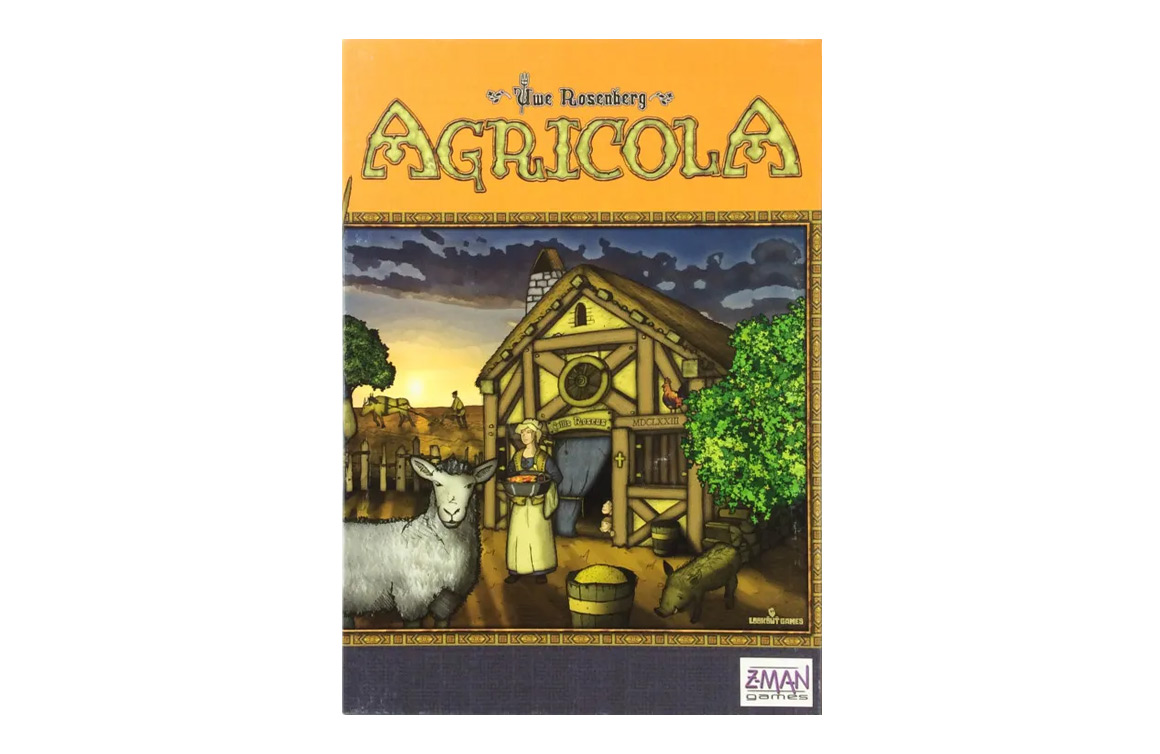In the fall season, Canadian and U.S. citizens — and many Mexicans, too — the harvest with Thanksgiving. Perhaps surprisingly in an era of rapidly evolving technology, farming is a well-represented theme in table games made for all ages and skills. Farming games have always been with us.
Farm Families from Milton Bradley (1996)
We’ve all heard parents coaxing the youngest children, teaching with illustrations, “What does the cow say?” Farm-themed memory games, such as Milton Bradley’s 1996 Farm Families, represents this genre very well. Kids match plastic animals with the sounds they make. There are many more traditional examples of memory games with simple image-matching of farm animals or crops, as well as children’s lotto or bingo games. In farming themed games, a friendly group of familiar animals hold a child’s interest.
The Farming Game from Weekend Farmer Company (1979)
Developed by a small firm in 1979 and updated in the 1990s, The Farming Game simulates the economics of a part-time farm with the goal of becoming a successful full-time farmer (starting out with $250,000). Players raise crops, rent land to opponents, and are faced with realistic costs and setbacks, such as business costs and fluctuations in the market. Some players love the game while others consider it just a farming-themed Monopoly. It has been re-released at least two times and has built a loyal fan base — many claim it offers a realistic interpretation of the ups and downs of running a family farm.
Agricola from Lookout Games (2007)
Perhaps the quintessential German Euro-game, Agricola is still widely played and recognized. It has won numerous awards since the time of its introduction in 2007. Players begin in simple shacks with spouses. Through their turns, they establish farms and families — which, incidentally, must be fed. While there are easy beginners’ rules and even a solitaire mode, the game gets more complex through each round of turns, as players gradually build their farms, sow their fields, and raise and sell their livestock, building more complex farms as well. Players must also react to their opponents’ play, and all is governed by what cards each player holds and the strategies they employ. Some players criticize the use of cards in this way, some mention a steep learning curve for the rules, yet others describe it as a perfect game. Designed by Uwe Rosenberg, Agricola features quality game components and it evolved through the years with updates and many expansions in a multitude of language editions.
Gaming fads come and go, but some common themes endure. The occupation of farming is perhaps riskier today than it has ever been. Try an agrarian board game or two before investing in your own land and livestock. Good gaming!
Note: If you buy something using the eBay link in this story, we may earn a small commission. Thank you for supporting independent toy journalism!




